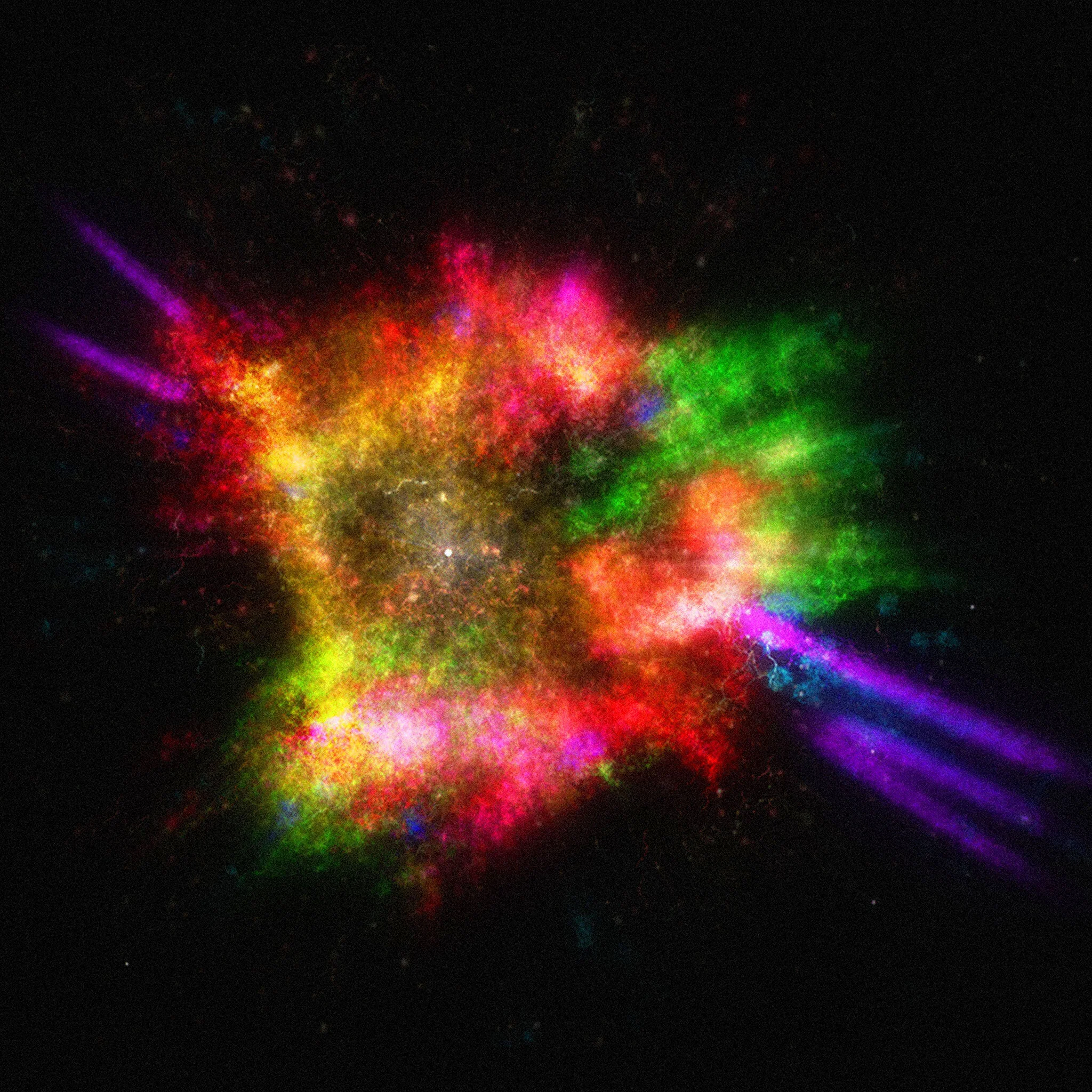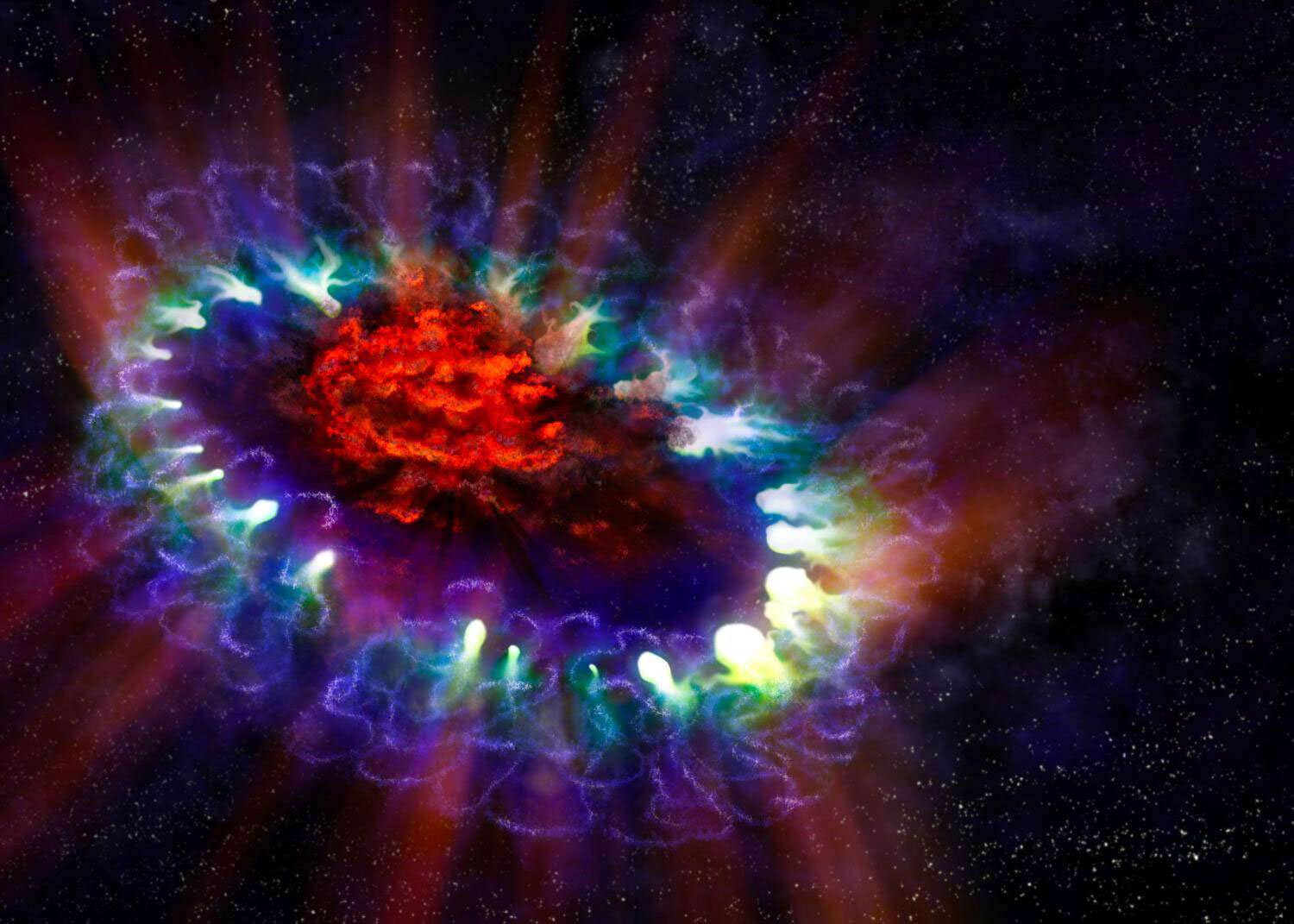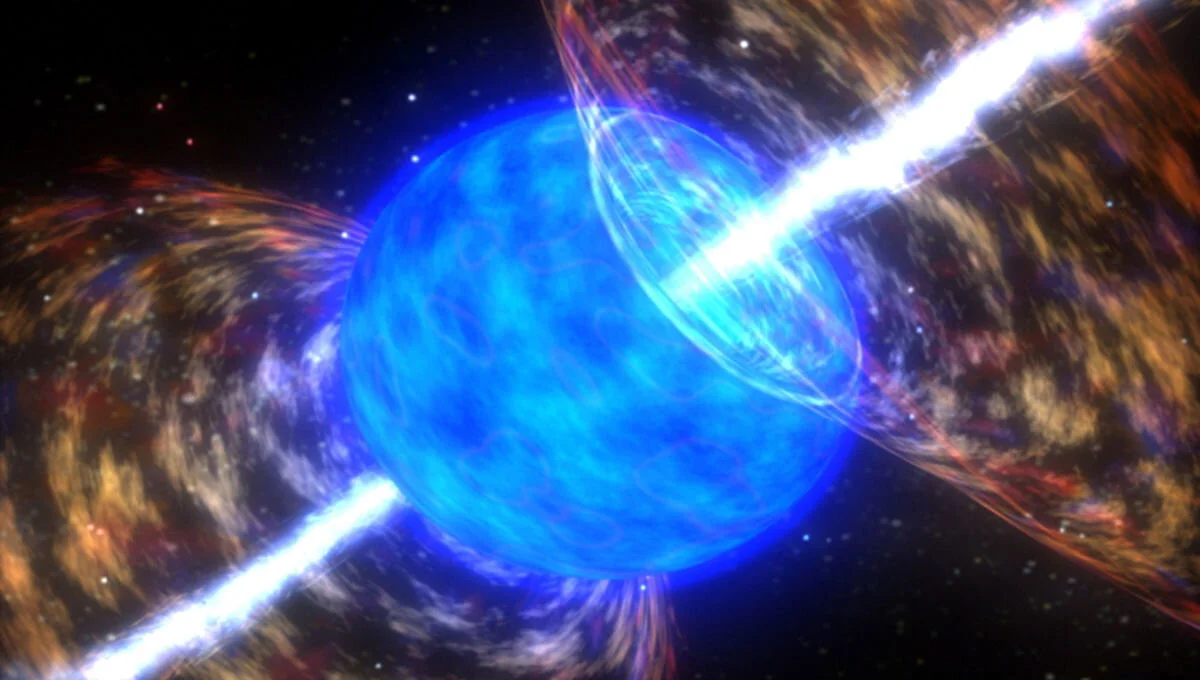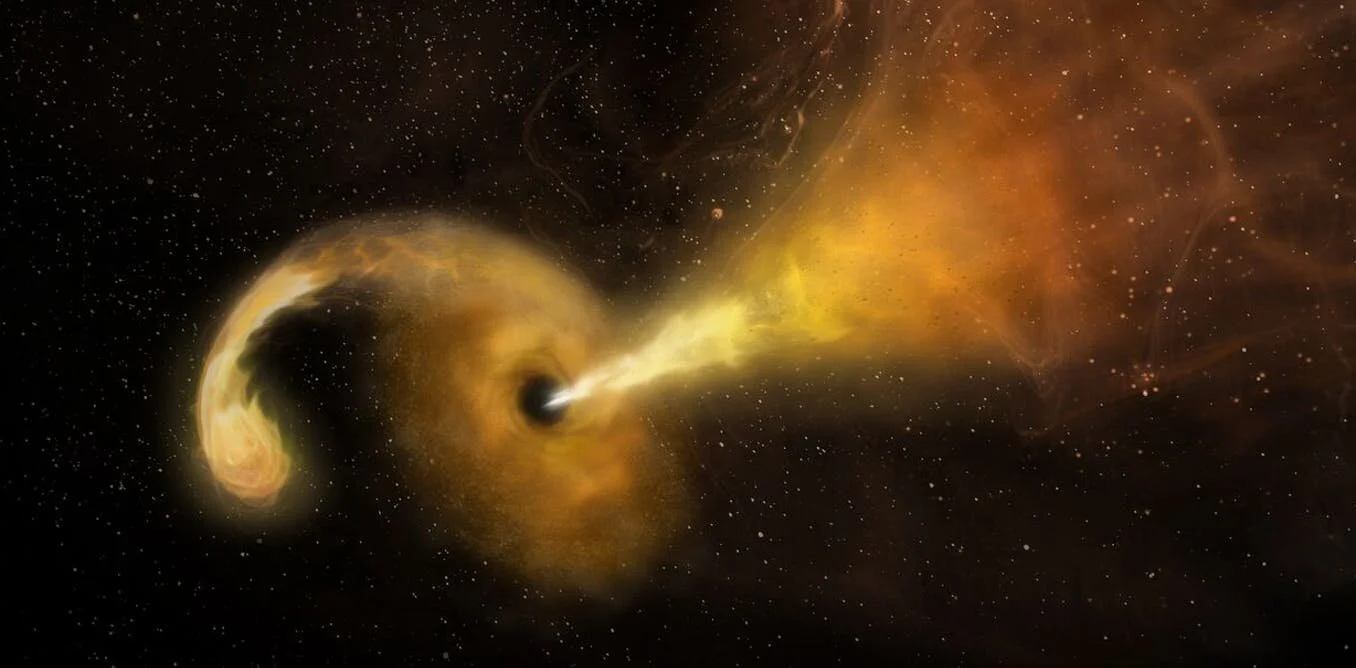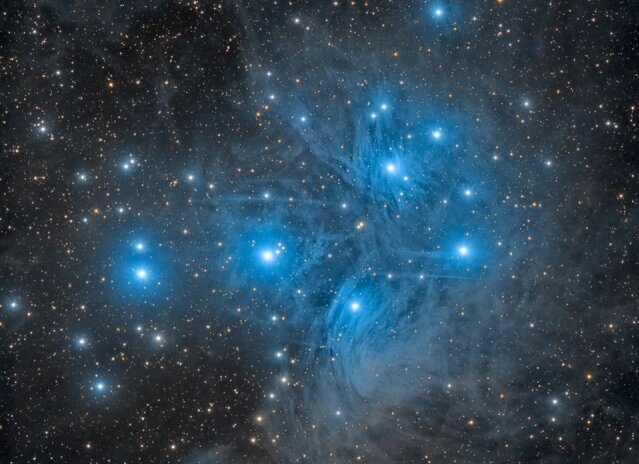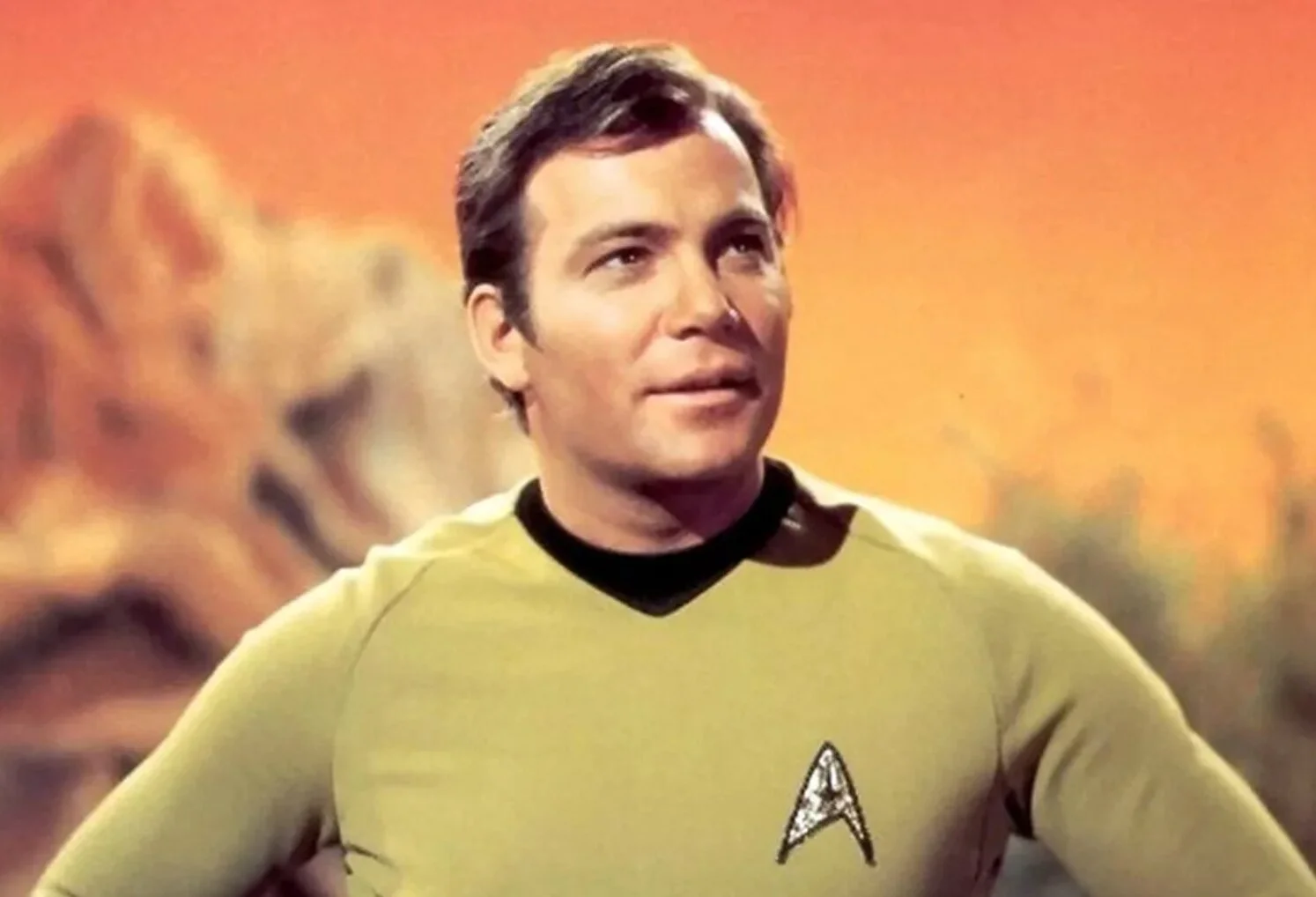By The Landlord
“The nitrogen in our DNA, the calcium in our teeth, the iron in our blood, the carbon in our apple pies were made in the interiors of collapsing stars. We are made of starstuff.” ― Carl Sagan, Cosmos
“We all shine on … like the moon and the stars and the sun." ― John Lennon
“It is not in the stars to hold our destiny but in ourselves." – William Shakespeare, Julius Caesar
This week, to help escape the creeping awfulness of things, a topic that might elevate, energise, and enable escape, if not to the firmament, at least to another level of imaginative distraction. Stars can come in many forms, from shapes and symbols to astronomical bodies to people, and can also be used in metaphor. But what do stars all have? Perhaps shared qualities. They give off light or perceived energy in various forms. They are explosive on their surroundings, at various speeds. Their appearance, and particularly their shape, draws the eye. They demand our attention. They are inspirational, and wondrous, but they might also be dangerous or not what you imagined if you get to close to them. They might live a short or a long time, and may well ultimately may self-destruct because of the energy-bursting life they lead, but either way, literally or metaphorically they burn bright.
And so, looking at this, our particular, expanding constellation, where a host of stars of all kinds variously gather, glitter, twinkle, glint and chat, using our particular local galaxy as base, there are many songs to shine out of the darkness. As Carl Sagan says above, stars and us and we are stars. Lyrically then, whether used as the main subject, or a key line, all types of stars are relevant. Too big? Not necessarily. Time is expanding, and the brief may appear to sweep broad as the night sky, or or the landscape of our world, but even here we have to have some limitations. So what doesn't count for this topic is where the word star is used simply as a modifier, in other words, or example, starman, starship, stardust etc.
So for inspiration, an illustrious luminary of visitors to the Bar, not held back by any lockdown or indeed the Ides of March of which we must now be beware. Perhaps one of the most stirring, and memorable examples of the star in many forms is the character of Roy Batty in Bladerunner, the superhuman replicant who sooner than the species he resembles, well at least until now, has to contemplate his own death. He has lived a spectacular life, describing such astronomical wonders he has experienced: "Fiery the angels fell. Deep thunder rolled round their shores. Burning with the fires of Orc," and yet in the compelling scene where he visits his maker, Tyrell, he seeks at all costs to live longer. Tyrell tries to becalm him, using a maxim: "The light that burns twice as bright burns half as long, and you have burned so very very brightly Roy." But it is Tyrell's time that has come at that moment, with a shocking, Shakespearean level of brutal violence.
Roy's time of course time must come, and does at the nirvana of during his epic encounter with Decker on the rooftop, a truly great film moment, fully encapsulating this theme in all ways, with a starry, poetic performance by scene-stealing star, Rutger Hauer. Rest in peace.
Stars do indeed shine brightly and die spectacularly, often taking everything around them, from an Egyptian pharaoh to the force of gravity from a black hole, as a star implodes. A spectacular show, but not one you should get tickets for:
Exploding star
Stars feature heavily in Shakespeare, notably in Romeo and Juliet those “star-crossed lovers”. Juliet says, quite extraordinarily, this description to elevate Romeo:
“When he shall die,
Take him and cut him out in little stars,
And he will make the face of heaven so fine
That all the world will be in love with night
And pay no worship to the garish sun.”
Shakespeare had a rival in the poetry of love with stars, in the form of John Donne:
“Up then, fair phoenix bride, frustrate the sun;
Thyself from thine affection
Takest warmth enough, and from thine eye
All lesser birds will take their jollity.
Up, up, fair bride, and call
Thy stars from out their several boxes, take
Thy rubies, pearls, and diamonds forth, and make
Thyself a constellation of them all;
And by their blazing signify
That a great princess falls, but doth not die.
Be thou a new star, that to us portends
Ends of much wonder; and be thou those ends.”
Neutron star saying its farewell
We have many more guest now in trying to shine out with their poetic star metaphors. “What Is Love? I have met in the streets a very poor young man who was in love. His hat was old, his coat worn, the water passed through his shoes and the stars through his soul,” says Victor Hugo in Les Misérables. And “stars which hung from the inky sky like bunches of inconceivably heavy, lustrous grapes, dusted with the yeast of eternity,” says Will Self, throwing his contribution into the sky.
“Silently, one by one, in the infinite meadows of heaven,
Blossomed the lovely stars, the forget-me-nots of the angels.”
– Henry Wadsworth Longfellow, Evangeline: A Tale of Acadie
“The sun was a fiery furnace of gold, but finally it set in the west and the cosmos glittered like a million burning embers, briefly reminding Awa of poetry readings under starry skies in Timbuktu”
― Rehan Khan, A Tudor Turk
“The sky a net, its mesh clogged with glowing stars.”
― Annie Proulx, The Shipping News
“And may my bronze name / touch always her thousand fingers / grow brighter with her weeping / until I am fixed like a galaxy / and memorised / in her secret and fragile skies.”
― Leonard Cohen, Let Us Compare Mythologies
“Stars, I have seen them fall,
But when they drop and die
No star is lost at all
From all the star-sown sky.
The toil of all that be
Helps not the primal fault;
It rains into the sea
And still the sea is salt.” ― A.E. Housman, A Shropshire Lad
“Twas noontide of summer,
And mid-time of night;
And stars, in their orbits,
Shone pale, thro' the light
Of the brighter, cold moon,
'Mid planets her slaves,
Herself in the Heavens,
Her beam on the waves.
I gazed awhile
On her cold smile;
Too cold–too cold for me-
There pass'd, as a shroud,
A fleecy cloud,
And I turned away to thee,
Proud Evening Star,
In thy glory afar,
And dearer thy beam shall be;
For joy to my heart
Is the proud part
Thou bearest in Heaven at night,
And more I admire
Thy distant fire,
Than that colder, lowly light.” ― Edgar Allan Poe , The Complete Poetry
Supernova
Stars also offer a sense of perspective:
“How instructive
is a star!
It can teach us
from afar
just how small
each other are.” – Piet Hein
”For every star in the sky
Someone is holding his ground.” ― Kenneth Koch
Neil Gaiman is also in the house. Here, then appropriately, from Brief Lives. “I like the stars. It's the illusion of permanence, I think. I mean, they're always flaring up and caving in and going out. But from here, I can pretend...I can pretend that things last. I can pretend that lives last longer than moments. Gods come, and gods go. Mortals flicker and flash and fade. Worlds don't last; and stars and galaxies are transient, fleeting things that twinkle like fireflies and vanish into cold and dust. But I can pretend...”
And from Stardust:
“A philosopher once asked, ‘Are we human because we gaze at the stars, or do we gaze at them because we are human?" Pointless, really…'Do the stars gaze back?’ Now, that's a question.”
In whatever state, stars symbolise adventure, exploration, the spirit of being, however temporarily, quite simply, alive. “Dwell on the beauty of life. Watch the stars, and see yourself running with them,” writes Marcus Aurelius in his Meditations.
“Do not complain beneath the stars about the lack of bright spots in your life,” adds the Norwegian 19th-century writer and stargazer, Bjørnstjerne Bjørnson. Meanwhile Andre Breton, in The Magnetic Fields, adds a perspective and colour closer to home. “They rarely discovered a star red as a distant crime or a star-fish.”
Hypernova beams
But the great astronomer Carl Sagan sums up best our fascination with the firmament in the context of being on Earth: “The sky calls to us. If we do not destroy ourselves, we will one day venture to the stars.” How profound then that first phrase of the second sentence. Another great, Stephen Hawking adds some more timeless perspective:
"Look up at the stars and not down at your feet. Try to make sense of what you see and wonder about what makes the universe exist. Be curious."
So then, more star action to be curious about here:
That sinking feeling. A black hole drags in an exploding star. Sounds familiar.
“Praise to be the stars that implode. A new freedom opens up within them: annulled from space, exonerated from time, existing at last, for themselves alone and no longer in relation to all the rest, perhaps only they can be sure they really exist, says Italo Calvino, in this great science book turns into fictional characters, Cosmicomics.
M.C. Escher, that creator of great illustrated perspectives, was also fascinated with the firmament with this wonderful description of a particular constellation: “I should like to end this description of the stars with the Pleiades, which I once saw rising up out of the sea. When and where in Holland is the atmosphere ever so free from dust and mist that you can see the stars clearly right down to the horizon? One evening I saw a point of light appearing on the horizon, followed a moment later by another one. I thought they were the lights of a ship sailing by in the distance. But then a third light appeared, and a fourth, and finally there were seven altogether; it was then that I recognised the Pleiades, making for the heavens in full sail, like a ghost ship.”
The Pleiades, Escher’s fascination
Star gazers and rock stars can coincide. Queen’s Brian May famously began his adult life studying astrophysics before gaining success with the band, and then 40 years later, finally managed to finish his PhD. “Everybody thought I was a bit of an eccentric for wanting to be out there looking at the stars, but I still do.”
Stars of course also people famous for what they do, whether that is music, acting, sports or any other field. But there are shining examples of greatness, and rocks simply floating around, hoping to bump into other rocks and hang out in one big clump. "Stars are scars from afar,” says the writer Khang Kijarro Nguyen. “A star needs a star,” says the footballer Dejan Stojanovic. And another footballer and now pundit Gary Lineker admits: “I know people think that a lot of sports stars are a little bit up themselves, but they all have their heroes, too.”
So while stardom used to mean people with genuine talent, those who walked into room and could light it up, from Marie Lloyd to Muhammed Ali, modern media has hyped this into people who at best can be described as less ordinary. The YouTuber Jake Paul, who, depending on what age your are in a household name or someone you’ve never heard of puts it like this: “Social media stars are only relevant because they make content, so they can never stop doing that.”
And from one form of absurdity to another, here’s William Shatner, who describes what it is like, at least on one country, but probably many Star Trek conventions, to be so revered as Captain Kirk, film and TV star, fictional explorer of the firmament boldly going on: “My understanding is, the fans are so ravenous in Canada, they gnaw on the stars.”
So then, over to your star-spotters and star-pickers, to open up this song topic as you wish. Our guiding star creating playlists from your suggestions, I’m delighted to say, is the returning astronomically wonderful AmyLee! Deadline for nominations is last orders 11pm UK time, for playlists published on Wednesday. No doubt it’ll be a stellar production.
New to comment? It is quick and easy. You just need to login to Disqus once. All is explained in About/FAQs ...
Fancy a turn behind the pumps at The Song Bar? Care to choose a playlist from songs nominated and write something about it? Then feel free to contact The Song Bar here, or try the usual email address. Also please follow us social media: Song Bar Twitter, Song Bar Facebook. Song Bar YouTube. Subscribe, follow and share.


